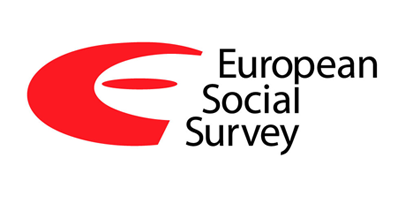Download Data from the European Social Survey on the Fly.
essurvey 
Description
The European Social Survey (ESS) is an academically driven cross-national survey that has been conducted across Europe since its establishment in 2001. Every two years, face-to-face interviews are conducted with newly selected, cross-sectional samples. The survey measures the attitudes, beliefs and behavior patterns of diverse populations in more than thirty nations. Taken from the ESS website.
Note: The essurvey package was originally called ess. Since essurvey 1.0.0 all ess_* functions have been deprecated in favor of the import_* and download_* functions. Also, versions less than and including essurvey 1.0.1 returned wrong countries. Please install the latest CRAN/Github version.
The essurvey package is designed to download the ESS data as easily as possible. It has a few helper functions to download rounds (a term synonym to waves to denote the same survey in different time points), rounds for a selected country and to show which rounds/countries are available. Check out the vignette and other documentation in the package’s website for more detailed examples of the essurvey package.
Installation
You can install and load the development version with these commands:
# install.packages("devtools") in case you don't have it
devtools::install_github("ropensci/essurvey")
or the stable version with:
install.packages("essurvey")
Usage
First, you need to register at the ESS website, in case you haven’t. Please visit the register section from the ESS website. If your email is not registered at their website, an error will be raised prompting you to go register.
Set your valid email as en environment variable.
set_email("[email protected]")
To explore which rounds/countries are present in the ESS use the show_*() family of functions.
library(essurvey)
show_countries()
#> [1] "Albania" "Austria" "Belgium"
#> [4] "Bulgaria" "Croatia" "Cyprus"
#> [7] "Czechia" "Denmark" "Estonia"
#> [10] "Finland" "France" "Germany"
#> [13] "Greece" "Hungary" "Iceland"
#> [16] "Ireland" "Israel" "Italy"
#> [19] "Kosovo" "Latvia" "Lithuania"
#> [22] "Luxembourg" "Montenegro" "Netherlands"
#> [25] "Norway" "Poland" "Portugal"
#> [28] "Romania" "Russian Federation" "Serbia"
#> [31] "Slovakia" "Slovenia" "Spain"
#> [34] "Sweden" "Switzerland" "Turkey"
#> [37] "Ukraine" "United Kingdom"
To download the first round to use in R:
one_round <- import_rounds(1)
This will return a data frame containing the first round. Typically, the European Social Survey data files comes with a script that recodes missing values to NA for different programs (Stata, SPSS, SAS).
Use recode_missings to recode all values automatically.
library(tidyverse)
one_round <-
import_rounds(1) %>%
recode_missings()
See the package vignette for greater detail or see the help page with ?recode_missings. You can also download several rounds by supplying the number of rounds.
five_rounds <- import_rounds(1:5)
This will download all latest versions of rounds 1 through 5 and return a list of length 5 with each round as a data frame inside the list.
You can check the available rounds with show_rounds() because if you supply a non existent round, the function will return an error.
two_rounds <- import_rounds(c(1, 22))
#> Error in round_url(rounds) :
#> ESS round 22 is not a available. Check show_rounds()
Alternatively, you can download all available rounds with import_all_rounds().
You can also download rounds by country:
dk_two <- import_country("Denmark", 1:2)
Use show_countries() to see available countries and show_country_rounds("Denmark") to see available rounds for chosen country. Alternatively, use import_all_cntrounds() to download all available rounds of a country.
You should be be aware that data from the ESS survey should by analyzed by taking into consideration the sampling and weights of the survey. A useful example comes from the work of Anthony Damico and Daniel Oberski here.
Stata, SPSS and SAS users
I’m quite aware that most ESS users don’t know R, that is why the package also allows to download the data in Stata, SPSS or SAS format with just one line of code. Instead of the import_* functions, use the download_* functions.
download_rounds(c(1, 2),
output_dir = "my/new/directory",
format = 'spss')
This will save the ESS rounds into separate folders and unzip them in the specified directory (if you want to know your current directory, type getwd()). This works the same way for download_country(). Be aware that if you download the files manually you should read them into R with the haven package for all essurvey related functions to work.
Please note that this project is released with a Contributor Code of Conduct. By participating in this project you agree to abide by its terms.
